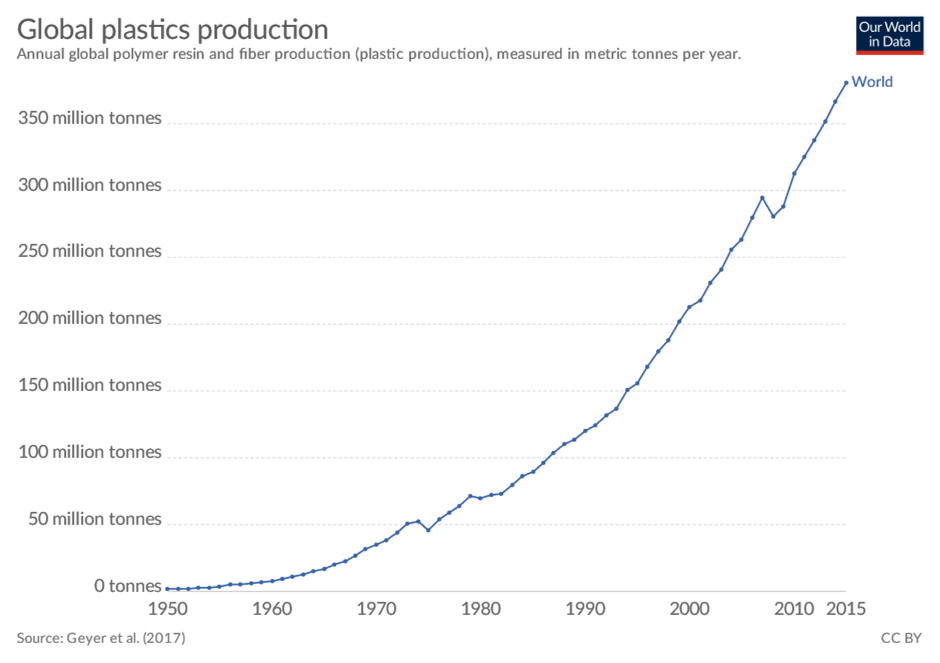The effects of ‘Want & Need’ Culture and how to fix it
- Chris Barnes

- Jun 4, 2020
- 3 min read
From the last 80 to 100 years, the planet has experienced a ‘product revolution’ due to the ever advancing technologies in transport, networking and manufacturing.
Unfortunately due to capitalization and greed of product companies, this has created a ‘need culture’ centered around the small developed wealthy population.
‘One of the major means by which its growth was facilitated was by the creation of an ability to manufacture ‘wants’ within mass markets. These ‘wants’ being felt and treated as if they were ‘needs’’ [Fry, 2009].
This careless abuse of a market is creating an ever growing plastic pollution problem whilst increasing the use of finite materials to accommodate a growing global population.
This begs the complex question of ‘Who is to blame?’. In short, ‘I don’t know’ is the answer to the question. This is down to the complexity of the industry over the last 80 years. A very vague answer would be ‘Ignorant companies trying to maximize profit by capitalizing off the naivety of the consumer’.

The more important question followed by this would be ‘Who’s job is it to fix it?’. I believe that to be able to sustain resources, and to sustain what we already have, should be a joint effort between the company and the consumer.
Lack of education of sustainability is a large factor of why people may not be sustainable and make wrong decisions regarding buying products. In the last 20 years, there has been an introduction to sustainability in education in primary and secondary schools. This has been a subject that has been thrown into other subjects such as design, science and geography but has never been taught as a stand alone subject. ‘Education for Sustainable Development requires far-reaching changes in the way education is often practiced today’ [UNESCO, 2014]. I believe greater time should be spent teaching the subject due to the severity of the problem we are facing in modern time.

In terms of companies taking responsibility of the problem, I believe that they should use the same influence and marketing techniques that created the ‘need’ culture, to influence a sustainable lifestyle. Promoting greener & sustainable products in comparison to normal products will create a unique selling point in the market and also spread awareness of sustainable living. I would compare this to the current vegan and vegetarian change in lifestyle you are seeing in countries such as the UK and the USA. More and more companies are getting involved and adapting their menus to be able to compete with rival food chains. ‘Supermarkets are staying on-trend. Supermarket chains in the UK are stocking more vegan options to keep up with consumers’ food choices.’ [Jones, 2020]. A competitiveness in sustainable products would benefit both the companies and the planet.
To play devils advocate on both of these points, you cannot force an individual or company to become more sustainable – we are all complex human beings who have very different views to one another. To be able to implement such a structure would have to come from a company or government with a large global and social influence.
References
Fry, T. (2009) Design futuring: sustainability, ethics and new practice. Oxford: Berg.
Gartner, K. (2016) Consumerism, Mass Extinction and our Throw-Away Society. [Online] The Art of. Available from: https://www.theartof.com/articles/consumerism-mass-extinction-and-our-throw-away-society [Accessed 04/03/20]
Jones, L. (2020) Veganism: Why are vegan diets on the rise? BBC News [Online] 02.01. Available from: https://www.bbc.co.uk/news/business-44488051 [Accessed 04/03/20]
UNESCO. (2014) What is Education for Sustainable Development? [Online] University of Plymouth. Available from: https://www.plymouth.ac.uk/students-and-family/sustainability/sustainability-education/esd [Accessed 04/03/20]





Comments